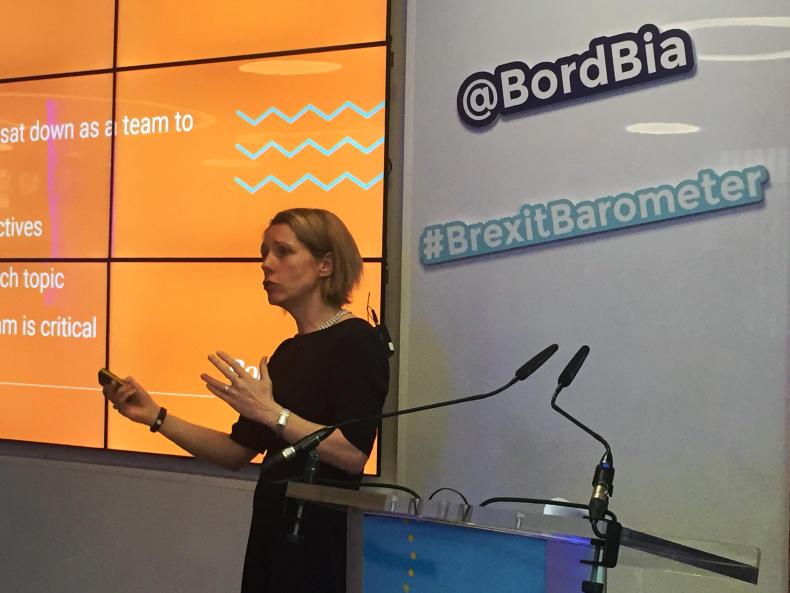Bord Bia’s Tara McCarthy told agribusiness executives in Dublin that the agency had prepared a new programme with PwC consultants to interact with agri food exporters on Brexit. She said the two-way Brexit Barometer between Bord Bia and businesses would help them answer the question: “If this happens, how are you fixed?”
The first phase is a list of 100 questions across six areas, from routes to market to customs and taxes. McCarthy noted that the latter was a new area for many Irish companies exporting to the UK.
Traffic light rating
Depending on the figures and answers given by each company, Bord Bia will give it a traffic light rating indicating areas where it is ready, needs to plan some improvements or is most at risk.
Bord Bia’s 14 sector managers will visit 150 companies over the coming weeks to go through the assessment with them. McCarthy insisted that preparations for Brexit needed to extend beyond a designated “Brexit person” in each business. “Your senior management team needs to buy into it,” she said.
With the data collected, Bord Bia will also adjust the support it offers to agri food companies exposed to Brexit risks from May. McCarthy said the agency would then launch new programmes as a result of this process in June.
Brexit’s impact on export and domestic markets
She added that one of the questions she was asked most often since taking her position in January was: “Do you change Bord Bia’s strategy?”
“Absolutely not do we change that,” she said. According to McCarthy, the pillars of the agency’s strategy centred on understanding consumers, establishing sustainability claims and turning them into business remain valid in the context of Brexit.
However, she added that adjustments were needed in the delivery of this strategy, with the defence of Ireland’s position in the UK market but also of its own domestic market. With currency fluctuations McCarthy warned: “there is an opportunity for Northern Ireland or UK suppliers to look more financially attractive.”






 This is a subscriber-only article
This is a subscriber-only article











SHARING OPTIONS: